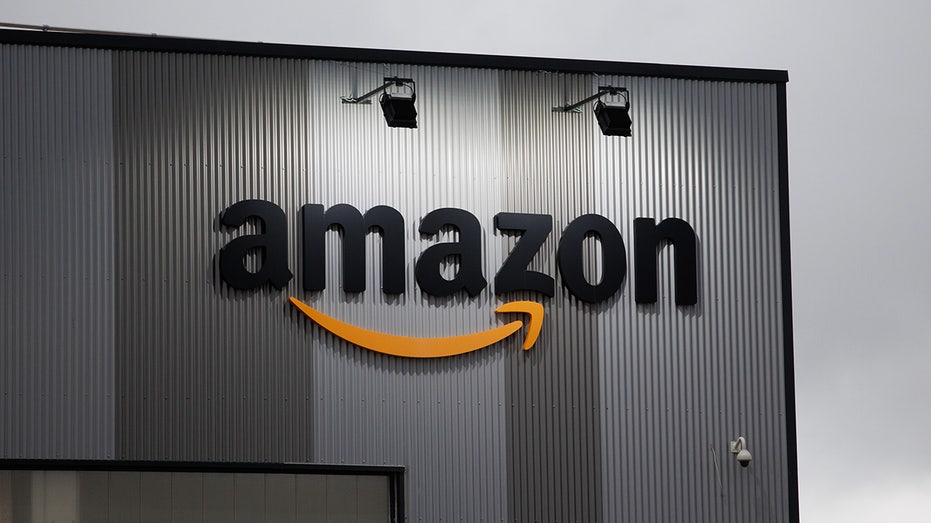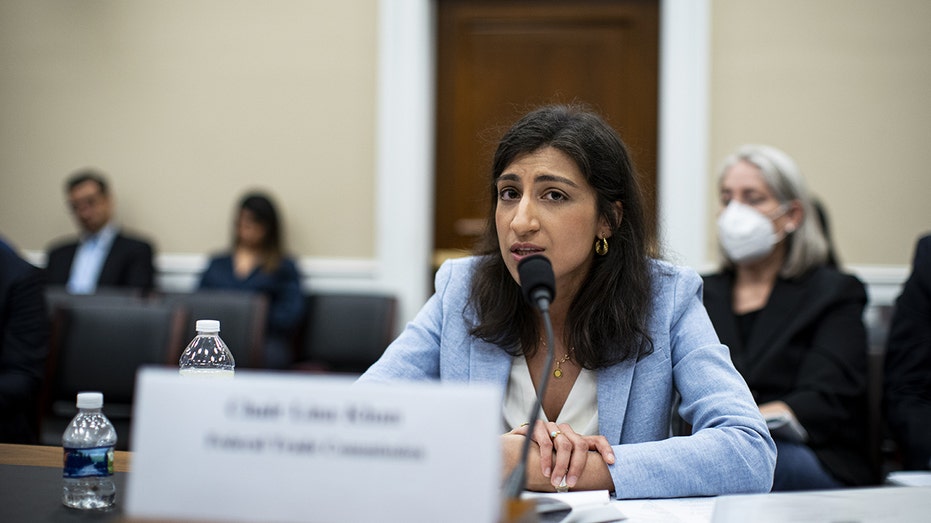FTC may file antitrust suit against Amazon next week: report
The FTC may file its antitrust lawsuit against Amazon as early as Tuesday, per the report
FTC chair Lina Khan’s strategy is based on ‘theology,’ not the rule of law: Sen. Bill Hagerty
Sen. Bill Hagerty, R-Tenn., joined ‘The Big Money Show’ to discuss FTC chair Lina Khan’s testimony during a Senate Judiciary Subcommittee’s hearing on antitrust laws and enforcement.
The Federal Trade Commission (FTC) is reportedly planning to file an antitrust lawsuit against e-commerce giant Amazon next week that could start a lengthy legal battle aimed at breaking up the company, according to a report.
Politico reported that the FTC may file the suit against Amazon as early as Tuesday, according to three people with knowledge of the matter. Details of the suit aren’t known and the contours of the legal challenge are subject to change until it is officially filed, but it is expected to target a number of Amazon’s business practices for allegedly harming consumers and undermining competition.
The Wall Street Journal previously reported that at an August meeting between Amazon and the FTC, the company declined to offer concessions to the FTC in the form of modifying its business practices to stave off a lawsuit and the agency didn’t indicate what sort of changes would be acceptable in terms of preventing a lawsuit. The Journal reported that a source indicated the FTC was planning to file its lawsuit against Amazon in late September.
AMAZON TO MEET WITH FTC OFFICIALS AHEAD OF EXPECTED ANTITRUST COMPLAINT

A potential lawsuit by the Federal Trade Commission against Amazon would likely set off a protracted legal battle that could take years to resolve. (Alejandro Martinez Velez/Europa Press via Getty Images / Getty Images)
The Journal added that some of Amazon’s business practices, such as its Fulfillment by Amazon logistics program and third-party sellers’ pricing on Amazon.com, would be scrutinized under the lawsuit, which could push for the company’s units to be broken up.
Politico noted that Amazon Prime may be a target of the suit given its expansion over the years beyond free shipping to include a variety of content offerings — things the FTC may view as undermining competition in the marketplace — as well as policies related to its logistics and advertising networks.
| Ticker | Security | Last | Change | Change % |
|---|---|---|---|---|
| AMZN | AMAZON.COM INC. | 210.32 | -12.37 | -5.55% |
A potential lawsuit by the FTC against Amazon would likely set off a protracted legal battle that could take years to resolve, and the FTC has spent the last three years compiling evidence and interviewing witnesses.
Amazon and the FTC did not respond to requests for comment prior to the publication of this story.
AMAZON ENROLLED CUSTOMERS IN PRIME WITHOUT CONSENT, MADE IT HARD TO CANCEL, FTC SAYS IN LAWSUIT

Lina Khan, chair of the Federal Trade Commission, has long criticized Amazon's market power as undermining competition. (Al Drago/Bloomberg via Getty Images / Getty Images)
In a separate complaint, the FTC announced Wednesday that it added three senior Amazon executives to an amended complaint against the company for what the agency alleges was a "years-long effort to enroll consumers into its Prime program without their consent while knowingly making it difficult for consumers to cancel their Prime subscriptions."
The amended complaint also included new details about Amazon’s alleged misconduct that had been redacted in the original complaint, such as the contents of internal company emails and messages the FTC says show the extent to which the company and its leaders were aware of the misconduct.
The FTC’s enforcement actions and the leadership of chairwoman Lina Khan have drawn criticism from Republicans in Congress and some in the business community, which could be given new fuel by a lawsuit against Amazon. Khan has long been a critic of Amazon’s clout and authored a 2017 article in the Yale Law Journal titled "Amazon's Antitrust Paradox" in which she argued that the company had the power to engage in predatory pricing and wielded too much influence across different business units.
GET FOX BUSINESS ON THE GO BY CLICKING HERE
The FTC lost a high-profile court case in July in which it sought to block Microsoft’s $69 billion acquisition of video game maker Activision, which the agency argued would be anticompetitive.




















